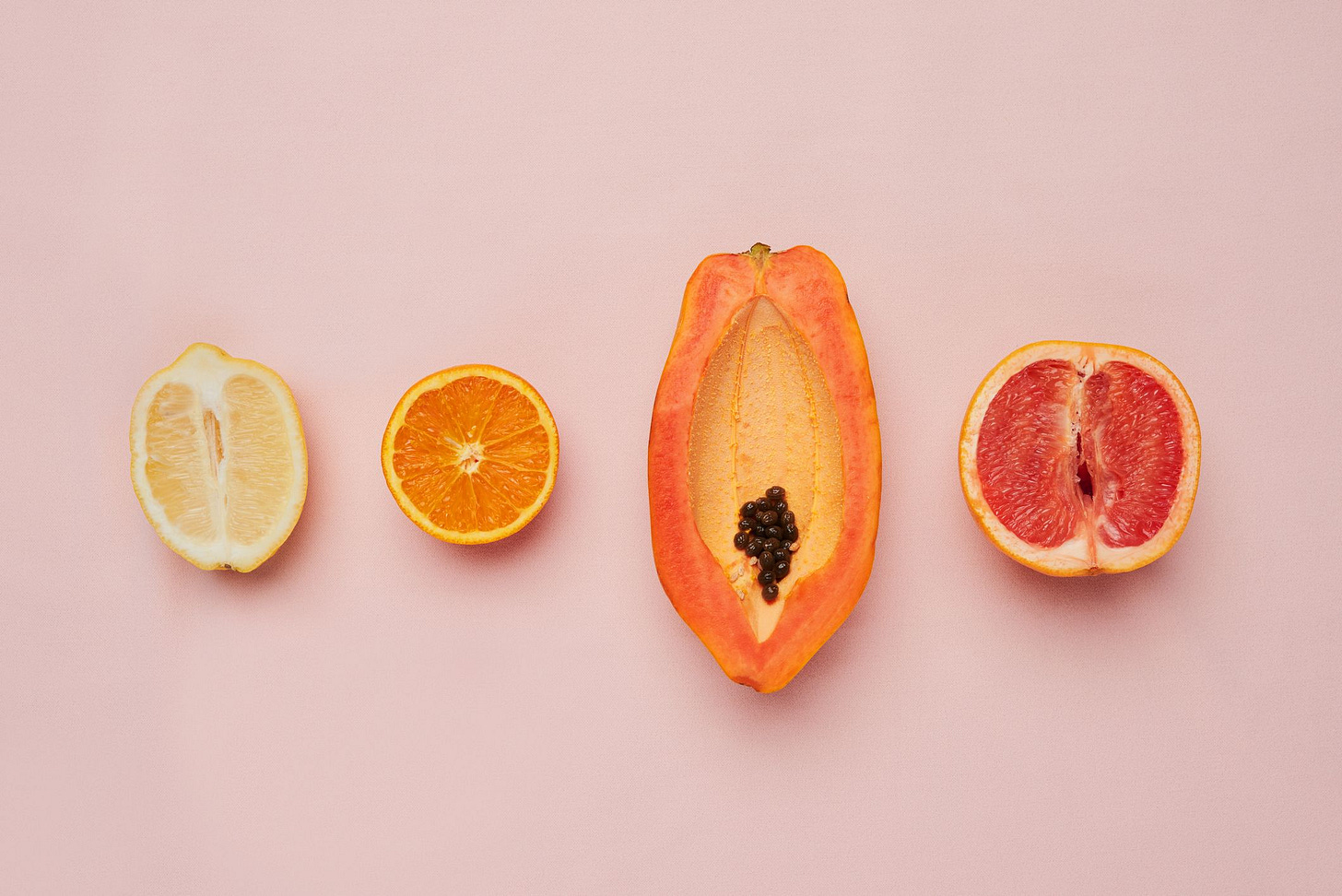Edition #69: Yes, Girls Do Masturbate
Plus, Seth Rogan's secret to happiness, a personality quiz, a joyful dance video
A Note From the Editor
Somewhere around third grade, I discovered a trick. If I hoisted myself on the corner of the bathroom counter, pressed all my weight onto my nether region and wiggled my hips around just so, I would experience euphoria. A slow, urgent tension building in my body, my mind wandering to places unknown, beads of sweat collecting around my hairline until eventually, an electric shock wave of relief rolled over me, so immensely physical that all I could think to do so start the whole thing over again.
Once I learned that my body was capable of this trick, I was hooked. I wanted to do it all the time— in school, while watching TV, at sleepovers. I tested out various ways to achieve the same result without having to hoist myself on the bathroom counter (sitting on the heel of my foot in criss-cross applesauce, for example, or straddling the corner of a plastic chair). I was not necessarily stealth about it, but I found no reason to be. It was only when my family took notice that I began to realize this wasn’t something I should do in public. They called it “leaning,” probably for the overtly crotch-to-surface position I would assume in those early days. “Stop leaning!” they would say when they caught me humping a chair in the kitchen. My older brother would tease me for the frequency with which I was caught in the act, so often that he even referred to it in a song he made up about me to the tune of “That Thing You Do”. It went:
”She leans on all the chairs,
she doesn’t wash her hair”
It took years— well into adulthood—to realize that I was masturbating. Even after I became sexually active, learned the language and the techniques and the quiet, contractual vow of silence young women are supposed to take when it comes to discussing pleasure, I still didn’t realize that I had spent the entirety of my third grade feverishly masturbating on every possible surface. When I did eventually learn this truth, it was not something I discussed openly. I assumed I had simply been a hypersexual child, one who would just as happily rub against her friend at a sleepover as she would against the bathroom counter at home. If this behavior was normal, I knew nothing about it because I’d never heard it discussed with any level of candor, not even amongst my closest girlfriends. Then, last summer, I came across a passage in Elena Ferrante’s The Lying Life of Adults and felt instantly recognized:
“I had a very pleasant memory of a game I played with Angela, on the couch at my house, when, in front of the television, we would lie facing each other, entwine our legs, and silently, without negotiations, without rules, settle a doll between the crotch of my underpants and the crotch of hers, so that we rubbed each other, writhing comfortably, pressing the doll—which seemed alive and happy—hard between us.”
It does not escape me that it took nearly twenty years to come across a pop culture reference—in the form of an Italian novel translated to English—to something near what I experienced as a young woman. Female masturbation, particularly adolescent female masturbation, remains entirely taboo in American pop culture. The same cannot be said for male masturbation. Long before I was aware of what I was doing to myself, I understood the fundamentals of how boys got themselves off. It started somewhere around the age of 13. Boys had wet dreams, waking up to soaked sheets because suddenly their minds could only focus on one thing (sex). Boys masturbated in the shower and in socks and the result was a sticky mess. Boys used lotion or tissues or towels and boys did this multiple times a day. Adults mostly made jokes about this, because boys were allowed to do all these things. Though they were expected to do so in the privacy of their bedrooms or of the shower, the fact that they were doing it was universally understood and accepted. A natural part of adolescence, a healthy wrung in the ladder of sexual development.
It makes sense, culturally speaking, that adolescent masturbation skews heavily male in the American canon. Masturbation is about pleasure and self-sufficiency, two things we do not often associate with young women. That is probably in part because sexual abuse is disturbingly prevalent for young girls. This bleak reality sets the stage, making the entire topic of healthy, empowered sexual behavior a no-fly zone that feels dangerous to breach—resulting in a culture of girls who do not have the tools, the language, or the confidence to talk about their desire for pleasure. A culture of gendered silence, anchored with a steel paperweight of shame.
The people who suffer from this silence, from this outdated taboo, are the women. Women, who are meant to feel mildly ashamed when they learn they were masturbating as children. Women, who do not see jokes or references to their experiences with adolescent masturbation in the movies or on TV. These individual truths cause societal ripple effects; a lack of knowledge amongst men about how to pleasure women, porn and sex scenes and sex jokes that are explicitly geared toward the male version of pleasure, the baseline expectation that sex is only successful if the male orgasm is achieved, while the female orgasm is treated as a cherry on top.—entirely optional, often unavailable. Though there is no hard and fast solution to this conundrum, I think we can start by working backward. That is, by acknowledging that girls do masturbate, even young girls, and treating that fact as the natural part of sexual development that it is. In short, we should treat it the same way we’ve always treated male masturbation— as a norm. That normalization starts with talking about it more openly and without an ounce of shame.
Cheers, my dears, and thank you for allowing me to stand on this sexual soapbox on this Thursday morning. What are your gendered experiences with masturbation? Is it something you talked about in your house growing up, something you were aware of when you started doing it?
P.s, a warm welcome to my new subscribers this week. I’m happy to have you here and I hope you find something worth discussing in today’s edition.
Three Pieces of Content Worth Consuming
Seth Rogan and the Secret to Happiness. I liked so many things about this Seth Rogan profile: that he seems to be exactly as he presents himself (affable, down to Earth, stoner), that he uses a second art form to inspire the first (pottery; reminding him how to be experimental in his comedy), and most importantly, that I learned a new tactic for creatively developing a project from this piece (by writing down a ton of specific details right away when a new story idea comes to mind).
What Happens When I’m No Longer “Impressive for My Age”? An oldie but goodie from a now-defunct women’s media site that is worth a revisit. I first read this essay shortly before turning 27 and it hit me a little too close to home. Revisiting it now, a year and a half, one global pandemic and one racial justice awakening later, was a humbling expereince, if only to act as a reminder that the things society places value one (i.e. relentless productivity and the pursuit of personal growth above all else) really aren’t of chief importance.
A Better Way to Think About Climate Change and the Kids Conundrum. A quick, powerful interview with badass climate activist Naomi Klien addressing whether or not people should have kids in our burning world. I love the concept of abundant love vs. scarcity love, the former being a sort of love that ensures people their basic needs will be met, and the latter being the sort that does not provide the essentials and thus creates copious amounts of fear. Admittedly, I do not consider the climate enough in my daily life because I don't know how to do this without swallowing mouthfuls of fear, something Klein addresses here. She suggests approaching caring for the planet from a place of love versus fear, and educating future generations about caring for the planet from a place of love.
When a society says, “You know what, the basics are going to be taken care of,” you have a really powerful intersection between policy and love. Nobody is locked out.
Perhaps You Should…
Try a Nifty Personality Quiz
I’m a true sucker for a personality quiz, and PrinciplesYou was one of the better ones I’ve taken in recent times. This fifteen-minute quiz provides you with a group of archetypes and strategies on how to best communicate with and understand those in other groups. It’s especially fun to send around to your friends/family and share results.
**Bonus Content** (Pure JOY)
One of my hobbies is watching dance videos on Instagram, and this one brought me pure joy (and sent me down a rabbit hole). might I also suggest this one, a combo by one of the coolest choreographers alive?
A Quote From A Book You Should Read:
“You gave him what he wanted,” Curt said. The planes of his face were hardening. It was an odd thing for Curt to say, the sort of thing Aunty Uju, who thought of sex as something a woman gave a man at a loss to herself, would say. In a sudden giddy fit of recklessness, she corrected Curt. “I took what I wanted. If I gave him anything, then it was incidental.”
-Americanah by Chimimanda Ngozi
This newsletter is best served with a side of conversation, so drop your opinions, reflections, and thoughts in the comments below and let’s get to talking.
Or, share the most thought-provoking piece from today’s edition with someone you love, then call them up to discuss, debate, and percolate. As a wise woman once said, “Great minds discuss ideas.”






